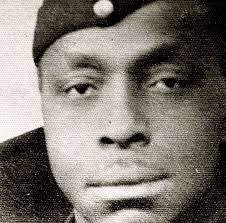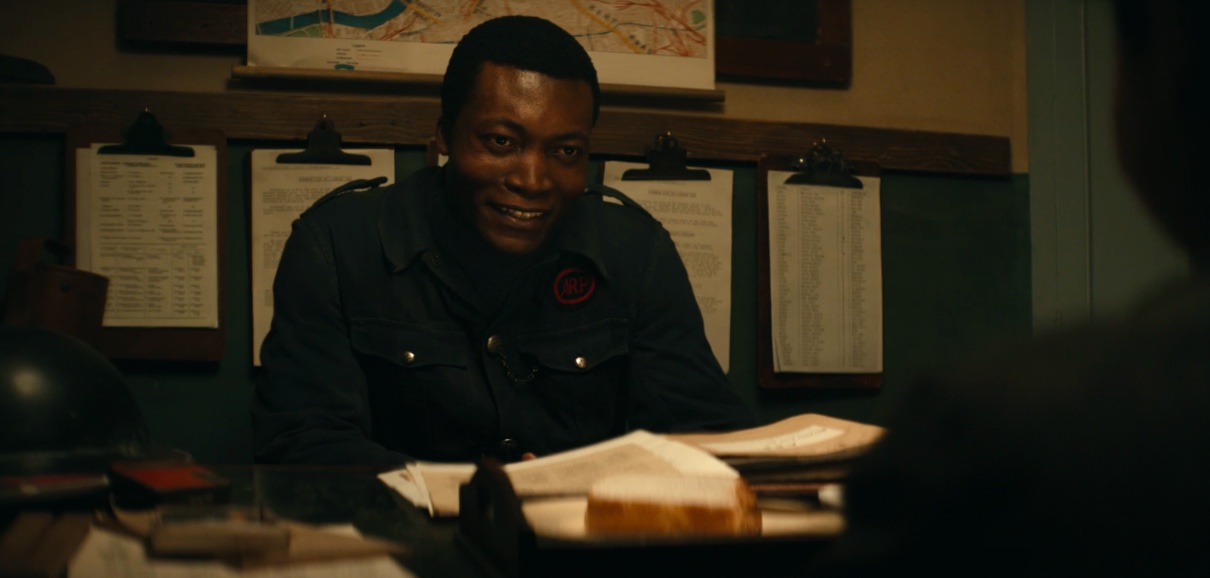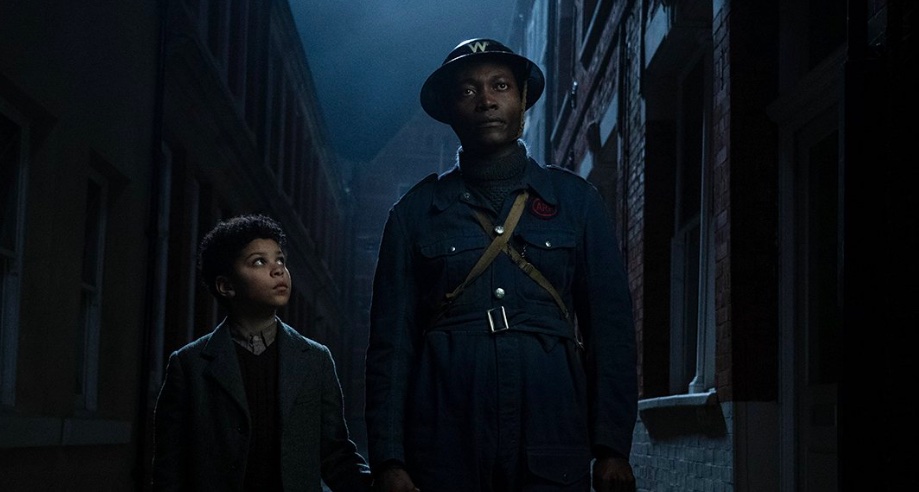Apple TV+’s ‘Blitz’ is a historical drama film that follows the story of a mother and a son who are separated in the chaos of the Second World War. Set in London, it begins with Rita Hanway putting her son, George, on a train that is to take him away from London to the countryside, where he will be safer from the bombings by the Nazis. However, midway through the journey, George decides to go back home, which takes them through some very unexpected situations. One of the people that the boy meets on his journey back home is a kind man named Ife, who has quite an influence on George’s perspective. SPOILERS AHEAD
Ife is Based on a Real ARP Warden During WWII in London
While ‘Blitz’ is an entirely fictional story, a lot of things in the movie are pulled from history. This includes the character of Ife, which is based on a real ARP Warden named Ita Ekpenyon. He was born in Creek Town, Calabar, Nigeria, in 1899 and had worked as a headteacher before he decided to move to London to study law. It was in 1921, and he was 28 years old. In the 1930s, he briefly worked in films, appearing in several projects. When the war broke out in 1939, Ita tried to enlist in the army, but at 46, he was too old for military service. Still, he wanted to contribute to the war effort and decided to volunteer for civilian defense duties. He joined the D Section St Marylebone Borough Council Civil Defence Volunteer group.

As a warden, his task was to enforce blackout regulations, help the civilians find shelters during the air raids, and take care of other security measures necessary to safeguard the safety of the populace. During the war, he also wrote and broadcast for the BBC’s program, Calling West Africa, through which he talked about safety during air raids and his work and responsibility as an ARP warden. He also talked about the casual racism that he had to endure during his job. One time, when he found a group of civilians fighting in a shelter over segregation, he stood up against the act and made the people set aside their differences and work together to ensure safety and peace for everyone involved.
Filmmaker Steve McQueen came across Ita Ekpenyon’s story during his research and found him to be a compelling character whose story needed to be told. He also wanted to do away with the whitewashing of the Second World War and the Blitz and focus on the story of the Black people who made a mark with their work and dedication to the public. In George’s fictional story, adding a character like Ife, who is heavily inspired by Ita, felt like a natural thing to do. Moreover, he also added the scene in the shelter where Ife speaks out against segregation as a gesture to highlight Ita Ekpenyon’s work and legacy.
Ita Ekpenyon’s Fate Was Distinctly Different From Ife’s Tragedy

In the movie, shortly after we meet Ife, he goes away and is not seen again. George overhears two wardens talking about how Ife tried to save a woman the previous night during the air raid and didn’t hesitate one bit to put his life on the line to save her. Their words confirm for George that Ife didn’t survive the raid, and this leaves him heartbroken. Something similar happened to Ita Ekpenyon in real life, but the outcome was not the same. There was an instance where he had to evacuate a bomb shelter that had been damaged during the bombing. At the time, an elderly woman was trapped there, and while Ita was helping her, another bomb was dropped, making an already unstable structure even more unpredictable. To save the woman on the ground, Ita threw himself on top of her to save her from any physical injuries caused by the falling structure. The movie references this incident, but while Ife doesn’t seem to have survived the tragedy, Ita survived it.
Ita Ekpenyon kept up the good work during the war and came out the other end alive and well. Following the war, he wanted to go back to his studies to become a lawyer, but the changed financial situation of the country took away the funding he’d previously had to study. The lack of money forced him to drop his plans, and he took up a job as a postman in London. He also wrote a memoir recounting his work during the war. He passed away in 1951 at the age of 52. Ita’s experiences were discussed in the 2021 BBC documentary Blitz Spirit with Lucy Worsley. His legacy is also carried on by his daughter, Oku Ekpenyon, who was appointed an MBE in 2010 and continues to build upon and honor her father’s work.
Read More: Is Grandpa Gerald Dead at the End of Blitz?


You must be logged in to post a comment.